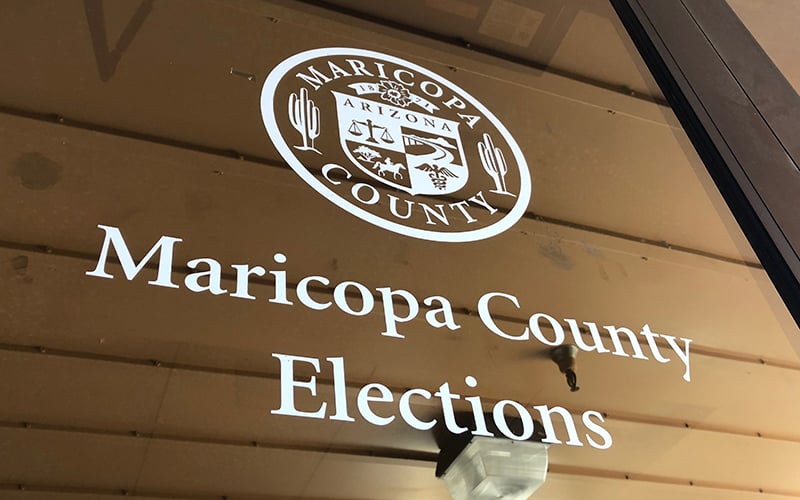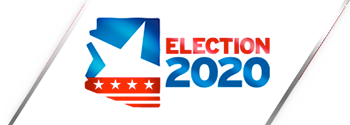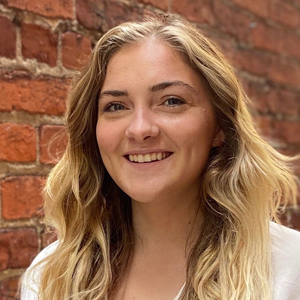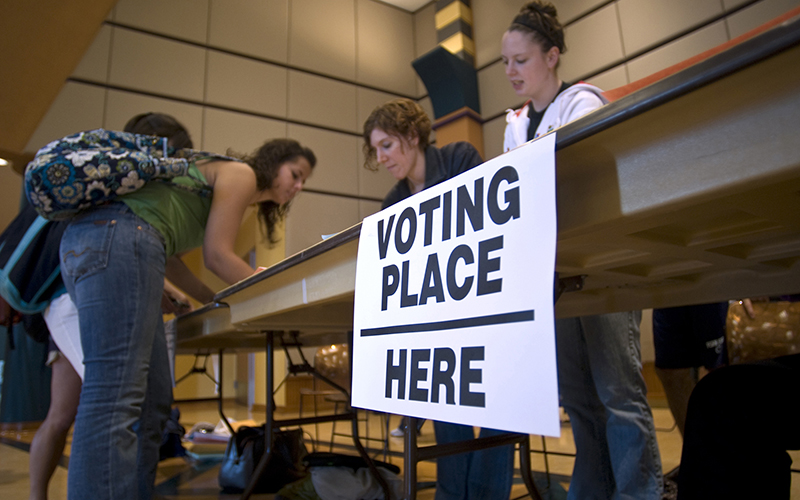WASHINGTON – Maricopa County officials said they are “ready and prepared” for the start of in-person voting Wednesday, despite a recent national report that identified it as one of seven Arizona counties at high risk of a poll worker shortage.
The Voter Protection Corps survey predicted the already-difficult issue of attracting poll workers would “be more challenging than normal” this year in the face of COVID-19, as poll workers tend to be older and more vulnerable to the virus.
“The same people who are most at risk for this virus are the ones who would typically be working the polls,” said Bob LaRoca, the executive director of Voter Protection Corps.
His group, working with Carnegie Mellon University, created a tool that identified counties in eight states that were expected to need more help recruiting poll workers this fall. In Arizona, Maricopa, Mohave, Navajo, Pima, Pinal, Yavapai and Yuma counties were identified as high risk.
But a Maricopa County Elections Department official said her agency has been flooded with applications for a smaller number of poll worker jobs this year, as a shift to voting centers has cut down on the number of personnel needed.
“We have some of the most dedicated poll workers who come back year after year,” said Megan Gilbertson, the spokesperson.
And those workers are competing for fewer jobs this year. Because of a shift from precinct-based voting to larger voting centers, the county will only bring on about half of the 3,600 poll workers it hired in previous years, Gilbertson said.
Despite hiring fewer poll workers overall, Gilbertson says there will be more of them working at each voting center in the coming weeks. This is because the voting centers for this election are physically larger than those used previously, so fewer of them are needed.
While a polling place in previous elections might have been staffed by six employees, Gilbertson said the “large, physically distanced locations that most voters will cast a ballot at will have 10 to 12 poll workers at each location.” That is expected to keep wait times “about what they would be in other general elections.”
Part of the shift was forced on the county: Gilbertson said some places that normally host a polling place, such as senior centers, declined to participate this year because of coronavirus concerns. Instead, Gilbertson said larger locations like the Phoenix Convention Center and the Arizona State Fairgrounds will be used.

A shift to larger, more efficient voting centers and the implementation of COVID-19 safety protocols are among the reasons Maricopa County elections officials are hoping for smooth sailing this election season. (File photo by Daisy Finch/Cronkite News)
“We can decrease the number of voting centers but increase the number of check-in stations,” she said. “It’ll be more like five polling centers in one.”
Of the 175 voting centers in Maricopa County, seven will open Wednesday, along with one drive-through dropbox location for mail-in ballots. The rest of the locations will open in phases as the election approaches, said Gilbertson, adding that, “Being a poll worker is not a one-day job anymore.”
The larger voting centers will also make it easier for officials to observe Centers for Disease Control and Prevention guidelines for in-person voting, which include creating as much distance between check-in stations and polling booths as possible, providing PPE for staff, sanitizing stations as well as minimizing the shared use of pens.
The governor and secretary of state announced this summer that they would be directing $9 million in federal coronavirus relief funds for voting safety, including the purchase of hand sanitizer, disinfectant, 179,000 facemasks, 175,000 pairs of gloves and 10,000 face shields for poll workers and voters.
Despite Gilbertson’s optimistic outlook, the chairman of the U.S. Election Assistance Commission said that the impact of COVID-19 has already been felt by election officials this year, aggravating what was already a problem around the country. The average poll worker is at least 61 years old, according to commission data.
“We heard in 2018 about 70% of jurisdictions told us they had some challenges recruiting poll workers,” said Ben Hovland, the EAC chairman. “Then obviously with COVID-19 this year, we saw issues in the primary with poll workers dropping out.”
Hovland also said a large concern is registered poll workers not showing up to their shifts.
“One of the things that we consistently hear from election officials that is sort of the worst-case scenario is people no-showing on Election Day or canceling at the last minute,” Hovland said.
But in Arizona, 89% of voters cast votes by mail for August’s primary and Gilbertson said she expects that trend to continue for the general election in November.
Gilbertson also said that poll workers will “highly encourage” voters to wear masks in the voting centers, but will not require them.
“We cannot stand in the way of anyone’s right to vote,” she said.
 Want more on the 2020 elections? Cronkite News, Arizona PBS and Indian Country Today have teamed up to bring you comprehensive election coverage. Click here for more.
Want more on the 2020 elections? Cronkite News, Arizona PBS and Indian Country Today have teamed up to bring you comprehensive election coverage. Click here for more.

